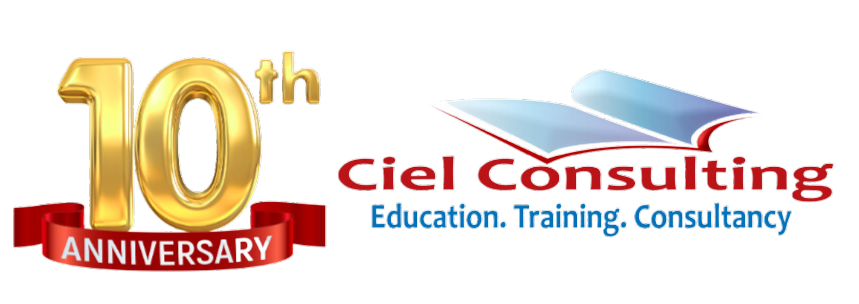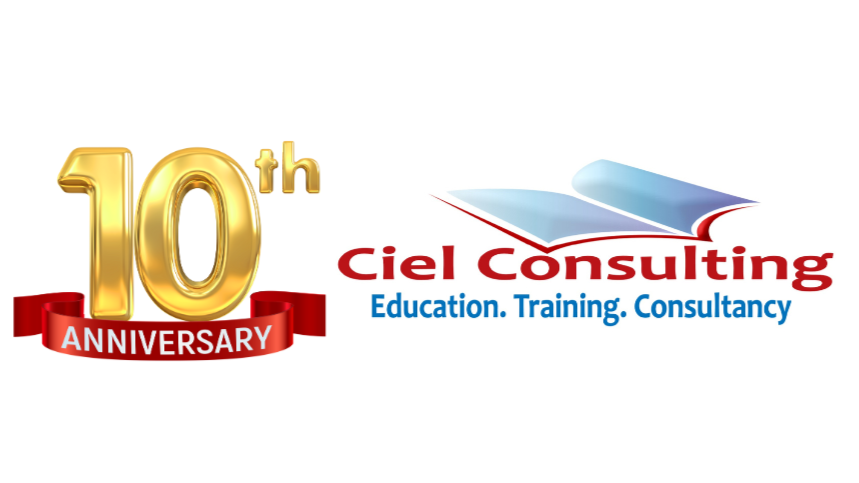5 Ways to Improve Your Self-Awareness
I am a firm believer that all growth starts with understanding yourself. Before you can grow as a person or as a professional, you have to first know who you are and why you do what you do. This skill is commonly referred to as “self-awareness,” and it’s an important element of emotional intelligence, which is widely considered a key factor in life and career success. Taking time to improve your self-awareness is one of the most powerful things you can do to support your development.
Signs You Need to Improve Your Self-Awareness
Here are a few tell-tail signs that your self-awareness may be lacking:
The feedback you receive from others is surprising and not aligned with how you see yourself
You struggle to create strong connections with others; you often feel something isn’t “clicking” but you’re not sure why
You believe you should be further ahead than you are (in life or in your career) but circumstances always seem against you
You continuously make decisions or engage in behaviors that backfire in some unexpected way
A lack of self-awareness can lead to confusion about the world around you. You might not understand why certain things are happening or why people are acting in certain ways. You may find yourself pointing the finger outward, playing the role of victim or claiming that things are “unfair,” instead of considering your own role in situations.
Even those who are fairly self-aware can still fall into bad habits. It’s easy to focus on others and forget how you’re showing up and contributing to your own experiences. Self-awareness requires you to be conscious of both external circumstances and how you’re responding to them, both externally and internally. You must pay attention to your own behaviors, thoughts, and feelings, and recognize how these things are impacting the world around you.
In truth, I think almost everyone (myself included) can benefit from improvement in this area. As humans, we are constantly evolving. Therefore, we must constantly seek a deeper level of self-awareness and continuously hone our skills.
If you’re interested in developing this essential success skill, here are 5 tried-and-true methods for improving your self-awareness.
1. Take Personality or Behavioral Assessments
There are a wide variety of data-based tools to help you better understand the underlying elements of your personality style and general behavioral tendencies. A few of the most popular ones include:
The DISC assessment (my personal favorite)
The Meyers-Briggs Type Indicator
Belbin Team Roles
True Colors Personality Test
Strengths Finder
These assessments are all designed to give you an objective view of your preferences, strengths and weaknesses, based on reliable and scientifically valid methodologies.
Are they perfect? No. Most of them rely on you to answer questions about yourself, which is inherently limiting (especially for those who do not already possess strong self-awareness). But such assessments can be a good place to start. In my experience, both personally and with coaching clients, they have been incredibly eye-opening and useful tools for continued self-reflection.
2. Journal
If you’ve been following me for any length of time, you likely expected this one to make the list. I strongly believe in the power of the written word. Something magical happens when we’re forced to put our thoughts down on paper. We begin to see things more clearly. We organize information differently. We even tap into our intuition more deeply.
In order to get the most benefit from journaling, especially as it relates to self-awareness, it should be done on a consistent basis—daily, if possible. It doesn’t have to be an excessively long exercise, but it should be a thoughtful one.
Write about the events of the day and how you feel about them. Use your journal to help you evaluate important decisions, process strong emotions, or analyze what you did well or didn’t do so well each day. Writing will help you consciously observe the things that you do, feel, and think subconsciously.
As an added bonus, your journals will serve as a wonderful memory-keeping device. Years from now, you can go back and read your past entries and marvel at your growth.
3. Engage in Reflective Time with Trusted Advisors
No matter how self-aware you become, you will never be able to fully see yourself without the help of others. In the short video clip below, I offer an example to help illustrate my point.
We need trusted advisors to help us see things about ourselves we might otherwise miss.
A trusted advisor is someone who believes in you and sees your potential, but also isn’t afraid to share hard-truths and tell you things you don’t want to hear. They do so with compassion and empathy and with your best interests at heart.
Leverage your trusted advisors to help you reflect on your feelings, thoughts and actions. Ask for their input and observations. Ask them to challenge you when you’re absorbed in character flaws or stuck in unproductive perspectives.
Remember: You can’t see yourself BY yourself. You need a trusted advisor to be your mirror.
4. Avoid Auto-Pilot
When you’re just going about your day, acting on instinct and subconscious routines, you’re not really mentally engaged—therefore, you can’t be self-aware. Think of it this way: Have you ever driven to work, pulled into your parking spot, and then suddenly wondered how you got there? We all go on auto-pilot at various points during the day, but it’s a dangerous state.
When we’re operating on auto-pilot, we’re not observing ourselves. We aren’t consciously processing what’s happening or how we’re responding. We may not even remember that certain things took place.
Self-awareness requires AWARENESS in the present moment. This can be very difficult; that’s why there’s an entire field of study around the topic of “mindfulness.” It takes practice. If you want to improve in this area, be intentional with your focus.
5. Spend Time Alone in Silence
Lastly, self-awareness expands in the vast openness of “alone time.” Sadly, a lot of people don’t spend any time alone; or, when they are alone, they fill the silence with music or TV or other things that block out their inner monologue.
For the past several years, I have come to relish silence in alone time. I don’t listen to anything when I’m driving or cleaning the house, and I occasionally even workout in total silence. The reason? It allows me to fully focus on my inner world. I can think about what’s happening in the outer world and reflect on how it makes me feel, what I want to do, and what I have done. I can listen for that small, quiet voice of intuition that usually guides me in the right direction if I let it. For all of these things, silence is required.
Click HERE to visit our website and enrol for any of our upcoming class to improve your competency.
Reference: EatYourCareer

